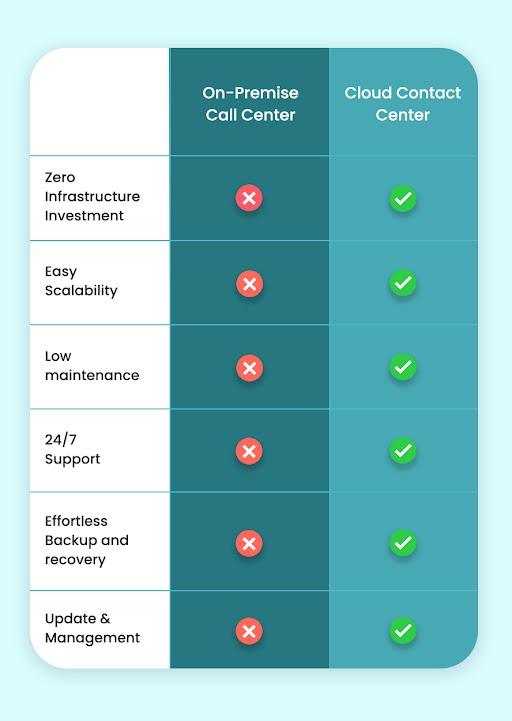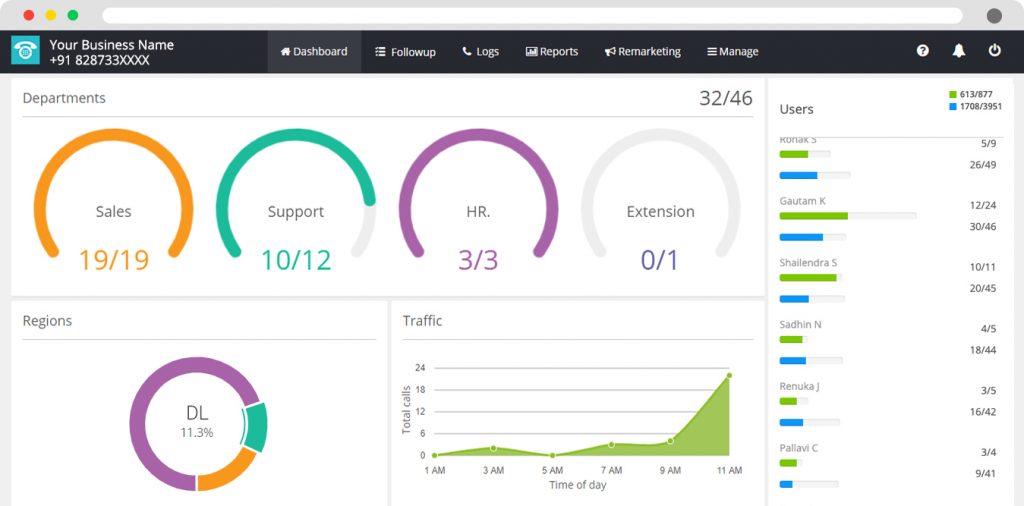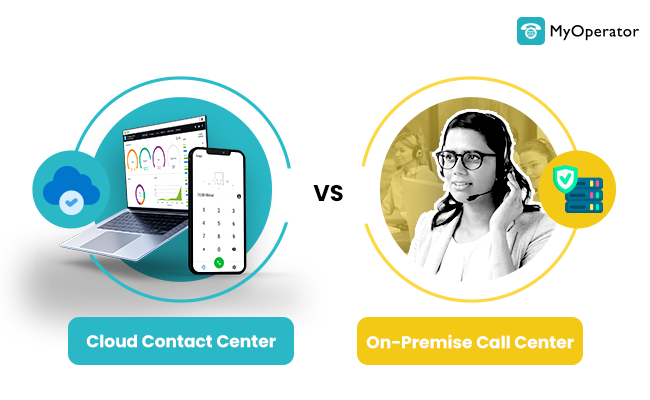Businesses are continually seeking innovative solutions to effectively engage with their customers and deliver exceptional service.
Speaking of customer engagement, Cloud contact centers have emerged as a game-changer in transforming customer interactions, revolutionizing the way businesses handle customer support and engagement.
One of the notable advantages of cloud contact centers is their ability to leverage popular messaging services like WhatsApp for Business, which boasts a staggering user base of over 2 billion monthly users.
Businesses recognize the potential of these messaging platforms and are increasingly utilizing cloud contact centers to communicate with clients, partners, and customers in a variety of ways.
Advanced technologies like artificial intelligence (AI), natural language processing (NLP), and machine learning (ML) are used widely to streamline customer interactions.
Through features like whatsapp for business chatbots, sentiment analysis, and intelligent routing, cloud contact centers empower businesses to deliver personalized, efficient, and effective customer experiences.
In this article, we will delve into the world of cloud contact centers vs on-premise call center to understand which is suitable for your business.
Cloud Contact Center vs On-Premise Call Center

Cloud Contact Center: Scalability and Flexibility
A cloud contact center solution, as the name suggests, operates entirely in the cloud, utilizing internet-based technologies to handle customer interactions.
One of the most significant advantages of a cloud-based solution is its scalability and flexibility. With a cloud contact center, businesses can easily scale up or down to meet fluctuating call volumes and seasonal demands. Understanding CcaaS will help in Choosing right communication solutions
CcaaS default scalability ensures optimal resource allocation, enabling businesses to efficiently manage costs and avoid overprovisioning or underutilization of resources.
Moreover, a cloud contact center offers the advantage of geographical flexibility. As long as agents have an internet connection, they can work from anywhere, whether it’s a different office location or their home.
CCaaS flexibility allows businesses to tap into a global talent pool, leading to improved customer service coverage across different time zones, reduced overhead costs, and increased agent satisfaction.
On-Premise Call Center: Control and Customization
On the other hand, an on-premise call center solution is a traditional model where all the infrastructure and equipment are physically located within the organization’s premises.
Organizations can tailor the call center environment to meet specific requirements, ensuring seamless integration with existing systems and processes.
By harnessing the features, businesses can create a unique customer experience that reflects their brand identity.
Additionally, an on-premise call center offers increased data security and compliance control further curtailing the customer service across multiple channels.
With customer data stored on internal servers, organizations have direct control over data protection measures and can align their security protocols with industry standards and regulatory requirements.
On the downside, the backup and recovery process is a daunting task which is quite opposite to Cloud Contact Centers where recovery is seamless.
Cost Considerations: Capital Expenditure vs. Operational Expenditure
Cloud contact center services typically operate on a subscription-based model, where businesses pay a monthly or annual fee based on usage. This approach minimizes upfront capital expenditure and provides predictable operational costs.
Furthermore, cloud solutions eliminate the need for hardware investments and ongoing maintenance, reducing the burden on IT teams and allowing them to focus on strategic initiatives.
On the other hand, an on-premise call center requires substantial upfront investments in infrastructure, equipment, and software licenses.
Organizations must bear the costs of purchasing, installing, and maintaining servers, telephony systems, and other hardware components.
While this model may involve higher initial expenses, it may be more cost-effective in the long run for large enterprises with significant call volumes or specialized requirements.
Integration and Innovation: Embracing Advanced Technologies
In today’s rapidly evolving technological landscape, businesses need to adopt innovative solutions that enhance customer experience and drive operational efficiency.
Cloud based contact centers are well-positioned to leverage advanced technologies such as artificial intelligence (AI), natural language processing (NLP), and machine learning (ML).
These technologies enable features like intelligent routing, chatbots, 1800 toll free number, sentiment analysis, and speech recognition, empowering agents to deliver personalized and efficient customer interactions.
While on-premise call center can integrate some of these technologies, the process might be more complex and time-consuming.
Legacy systems and limited integration capabilities may hinder the seamless implementation of cutting-edge solutions.
However, it’s important to note that not all businesses require the same level of technological advancements, and the suitability of these innovations like toll free number for business, IVR solutions, campaign management, and call center software solutions should be evaluated based on individual needs.
The Winner – Cloud Contact Center

The global Cloud-Based Contact Center market is projected to grow from USD 17.1 billion in 2022 to USD 54.7 billion by 2027, at a Compound Annual Growth Rate (CAGR) of 26.1%.
This is a clear indication that businesses across the world are embracing the Cloud-based contact centers technology at a rapid pace.
Here’s a run down of key aspects that make CCaaS the best!
- Scalability: Easily scale up or down to meet fluctuating call volumes and seasonal demands.
- Flexibility: Agents can work remotely from anywhere with an internet connection, providing global access to talent and enabling 24/7 customer support coverage.
- Omnichannel Support: Effectively manage customer interactions across various channels, including voice calls, email, chat, social media, SMS, and messaging apps.
- Cost-effectiveness: Eliminate upfront capital expenditure on hardware and infrastructure, and opt for a subscription-based model with predictable operational costs.
- Technological Advancements: Leverage AI, ML, NLP, and automation for intelligent routing, chatbots, sentiment analysis, and speech recognition, enhancing customer experiences and agent productivity.
- Integration Capabilities: Seamless integration with other cloud-based applications and technologies for a unified view of customer data and streamlined workflows.
- Data Security and Compliance: Reputable cloud service providers implement robust security measures, encryption protocols, and compliance standards.
Grow your Business with Cloud Contact Center.
Connect with Cloud Experts Now!

Conclusion
Evidently, Integrating cloud contact centers is the best choice for businesses aiming to deliver exceptional customer service, drive operational efficiency, and stay ahead in today’s dynamic business landscape.
Advanced features like IVR solutions and omnichannel support have substantially revolutionized the customer communication experience for greater good.
By embracing the cloud, businesses can optimize resource allocation, tap into a global talent pool, leverage cutting-edge technologies, streamline workflows, and ensure the protection of valuable customer data.
Reputed Cloud Contact center service providers like MyOperator are providing the best state of the art VoIP based Cloud Contact Center services.
Don’t miss the opportunity to transform your customer service experience and propel your business towards success with a cloud contact center. Embrace the power of the cloud and unlock new possibilities for growth and customer satisfaction.


